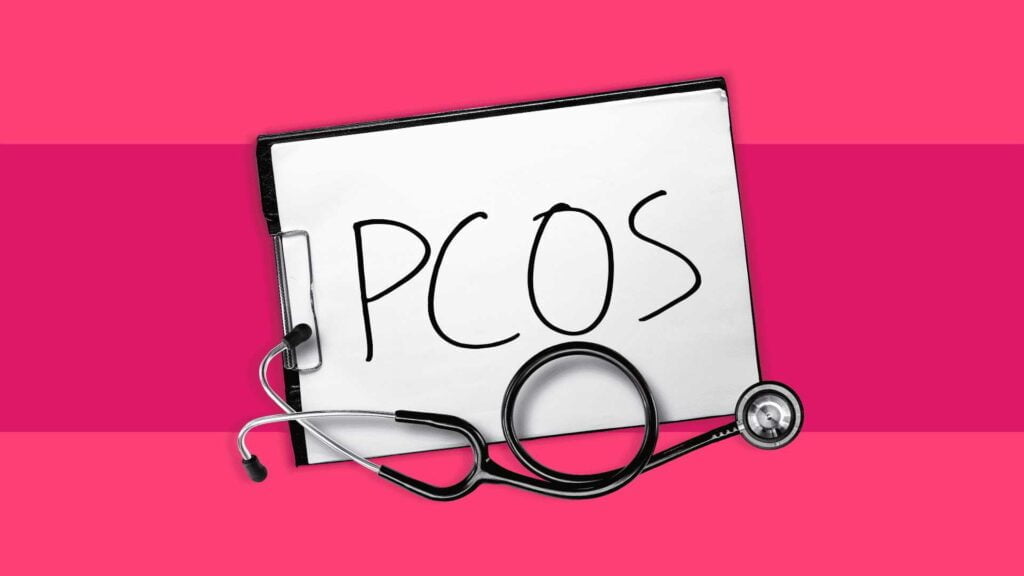Living with Polycystic Ovary Syndrome (PCOS) can present various challenges, and when coupled with obesity, the impact on overall health and well-being becomes even more significant. Understanding the intricate relationship between PCOS and obesity is crucial for devising effective treatment strategies. In this comprehensive guide, we will explore the connection between PCOS and obesity and provide PCOS obesity treatments for managing these conditions.
Contents
When To Consider PCOS Obesity Treatments?
 PCOS obesity treatments may be considered when individuals with PCOS are experiencing challenges in managing their weight through lifestyle modifications alone or when obesity-related health issues become a concern. Here are some situations when considering PCOS obesity treatments may be appropriate:
PCOS obesity treatments may be considered when individuals with PCOS are experiencing challenges in managing their weight through lifestyle modifications alone or when obesity-related health issues become a concern. Here are some situations when considering PCOS obesity treatments may be appropriate:
- Persistent Weight Gain: If despite efforts to maintain a healthy lifestyle, including a balanced diet and regular exercise, there is persistent weight gain or difficulty losing weight, medical interventions may be considered.
- Insulin Resistance: For individuals with PCOS who also exhibit insulin resistance, medications may be considered to improve insulin sensitivity and aid in weight management.
- Obesity-Related Health Issues: When obesity contributes to or exacerbates other health issues such as high blood pressure, diabetes, or sleep apnea, healthcare professionals may recommend interventions to address both PCOS and obesity to mitigate these risks.
- Fertility Concerns: Obesity can negatively impact fertility, and for women with PCOS who are trying to conceive, weight management becomes crucial. In such cases, healthcare providers may suggest a combination of lifestyle changes and medical interventions to optimize fertility.
- Lack of Progress with Lifestyle Modifications: If individuals have made significant lifestyle changes, including diet and exercise. But are not seeing the desired results in weight management, healthcare professionals may explore additional interventions to support their efforts.
It’s important to note that the decision to pursue PCOS obesity treatments should be made in consultation with healthcare providers, including gynecologists, endocrinologists, and nutritionists. These professionals can evaluate the individual’s health status, assess the impact of PCOS and obesity on overall well-being, and recommend personalized interventions based on the specific needs and goals of the individual.
Can PCOS Weight Gain Be Treated?
Yes, the weight gain associated with Polycystic Ovary Syndrome (PCOS) can be effectively managed through a combination of lifestyle modifications, medical interventions, and personalized treatment plans. While PCOS itself doesn’t cause weight gain directly, hormonal imbalances associated with the condition can contribute to difficulties in maintaining a healthy weight.
Moreover, medical interventions may be considered, especially in cases where weight loss proves challenging through conventional methods alone. It’s crucial, however, to emphasize the importance of individualized approaches, as the effectiveness of treatments can vary from person to person. Consulting with healthcare professionals is key to developing a comprehensive and tailored plan. This addresses the unique needs and challenges of each individual dealing with PCOS-related weight gain.
What Are Some Medical PCOS Obesity Treatments?
 Several medical interventions can be considered for the management of obesity in individuals with Polycystic Ovary Syndrome (PCOS). It’s important to note that the effectiveness of these treatments can vary among individuals, and a personalized approach is often necessary. Here are some medical PCOS obesity treatments:
Several medical interventions can be considered for the management of obesity in individuals with Polycystic Ovary Syndrome (PCOS). It’s important to note that the effectiveness of these treatments can vary among individuals, and a personalized approach is often necessary. Here are some medical PCOS obesity treatments:
Metformin
Metformin is a commonly prescribed medication for individuals with PCOS, especially those with insulin resistance. It helps improve insulin sensitivity, reducing the elevated insulin levels often associated with PCOS. This, in turn, may contribute to better weight management.
Anti-Obesity Medications
Some medications approved for obesity treatment may be considered in certain cases. These medications work by affecting appetite, reducing food intake, or altering the absorption of nutrients. However, they are typically prescribed with caution and under the guidance of healthcare professionals due to potential side effects.
Oral Contraceptives
Birth control pills are often prescribed to regulate menstrual cycles and hormonal imbalances in women with PCOS. While they don’t directly promote weight loss, they can help manage some of the symptoms associated with PCOS, which may indirectly impact weight.
Anti-Androgen Medications
Medications that block the effects of androgens (male hormones) may be prescribed to address symptoms such as hirsutism (excess hair growth) and acne. While not specifically targeted at weight loss, managing these symptoms can contribute to an improved sense of well-being and potentially support lifestyle changes.
Bariatric Surgery
In extreme cases of obesity and when other interventions have not been successful, bariatric surgery may be considered. Procedures like gastric bypass or sleeve gastrectomy can lead to significant weight loss. However, these surgeries involve risks and are typically reserved for individuals with severe obesity and related health issues.
Individuals with PCOS and obesity must work closely with healthcare professionals to determine the most appropriate treatment plan for their specific situation. A comprehensive approach is often the most effective strategy for managing PCOS-related obesity.
What Are Some Strategies To Reduce PCOS Obesity?
 Reducing PCOS obesity involves a multifaceted approach that combines lifestyle changes, dietary modifications, regular physical activity, and sometimes medical interventions. Here are some strategies to help manage and reduce PCOS-related obesity:
Reducing PCOS obesity involves a multifaceted approach that combines lifestyle changes, dietary modifications, regular physical activity, and sometimes medical interventions. Here are some strategies to help manage and reduce PCOS-related obesity:
Balanced and Nutrient-Rich Diet
Adopting a well-balanced and nutrient-dense diet is crucial. Focus on whole foods, including fruits, vegetables, lean proteins, whole grains, and healthy fats. Avoid excessive intake of processed foods, sugary snacks, and refined carbohydrates.
Manage Insulin Levels
Given the common association between PCOS and insulin resistance, focus on foods with a low glycemic index to help regulate blood sugar levels. This includes incorporating complex carbohydrates and fiber-rich foods into the diet. Consider smaller, more frequent meals to avoid spikes in insulin.
Regular Physical Activity
Engage in regular exercise to promote weight loss and improve insulin sensitivity. Both aerobic exercises (such as walking, jogging, or cycling) and strength training can be beneficial. Aim for at least 150 minutes of moderate-intensity exercise per week.
Weight Management Programs
Joining a structured weight management program, supervised by healthcare professionals or nutritionists, can provide guidance, support, and accountability. These programs often include personalized meal plans, exercise routines, and behavioral strategies.
Behavioral Therapy
Addressing the emotional and psychological aspects of eating habits is crucial. Behavioral therapy, including counseling or support groups, can help individuals develop healthier relationships with food and make sustainable lifestyle changes.
Mindful Eating Practices
Practice mindful eating by paying attention to hunger and fullness cues. Avoid emotional eating and be aware of portion sizes. Taking time to savor and enjoy meals can contribute to better digestion and overall satisfaction.
Adequate Sleep
Prioritize getting enough quality sleep each night. Lack of sleep can contribute to hormonal imbalances and increased cravings for unhealthy foods, making weight management more challenging.
Hydration
Stay adequately hydrated by drinking plenty of water throughout the day. Sometimes, thirst can be mistaken for hunger, leading to unnecessary calorie consumption.
Regular Monitoring and Follow-Up
Keep track of progress through regular monitoring of weight, dietary habits, and physical activity. Regular follow-ups with healthcare professionals can help adjust strategies as needed.
Individuals with PCOS should work closely with healthcare providers, including endocrinologists, nutritionists, and fitness professionals. They will help to create a tailored plan that addresses their unique needs and challenges in managing obesity associated with PCOS.
Conclusion
In conclusion, managing PCOS-related obesity is a journey that involves a combination of lifestyle changes, medical interventions, and personalized strategies. By adopting a balanced diet, staying physically active, and seeking professional guidance when needed, individuals with PCOS can take proactive steps toward achieving a healthier weight. Remember, it’s not just about shedding pounds; it’s about enhancing overall well-being and addressing the specific challenges that PCOS presents.
With the right support and a commitment to making sustainable changes, it’s entirely possible to navigate the complexities of PCOS and obesity, paving the way for a healthier and more fulfilling life. If you are facing PCOS-related issues, PCOS treatment at HerMantra can help. Book your free trial online pcos treatment session now.


